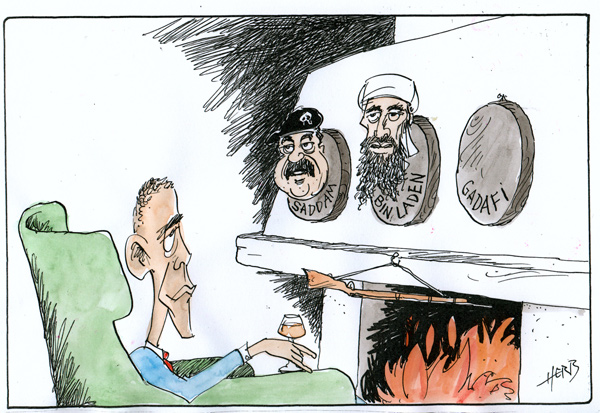
Bin Laden’s death seems an act of justice. However, the competent state of Afghanistan is not responsible for it.
The first anniversary of the death of the notorious al-Qaida terrorist is being remembered this week. It brings back terrible murders such as the ones at the World Trade Center in New York, the one committed in March 11, 2004, on three trains in Madrid and — directly or as an imitation — the one that took place on London trains. He is undoubtedly responsible for other minor crimes and attacks not only in Europe but also in Asia and Africa.
It is obvious that his behavior deserves a widespread reproach and that nobody can be sorry about his death, which is clearly beneficial for mankind. Nevertheless, democracies have to be meticulous in the development of that way of acting. Sovereignty must be respected. Repression of criminal acts and penalties against offenders, no matter how serious they are, are a matter for every state. In this case, manners have not been minded. Bin Laden’s death seems an act of justice. However, the competent state of Afghanistan is not responsible for it. The fact is that the punishment, for which the United States claimed responsibility, was carried out with a sense of vengeance instead of justice. This converts the condemnation into murder and tarnishes the political career of Obama, which should be exemplary. The principle of sovereignty and respect was broken when bin Laden was pursued to his hideout by using foreign forces. The principle against this is based on the competence of all countries and this foray should embarrass all civilized nations. Eventually, his disappearance in the sea involves a lack of respect that, in the case of Muslim people, ends with an unjustified insult.

Leave a Reply
You must be logged in to post a comment.